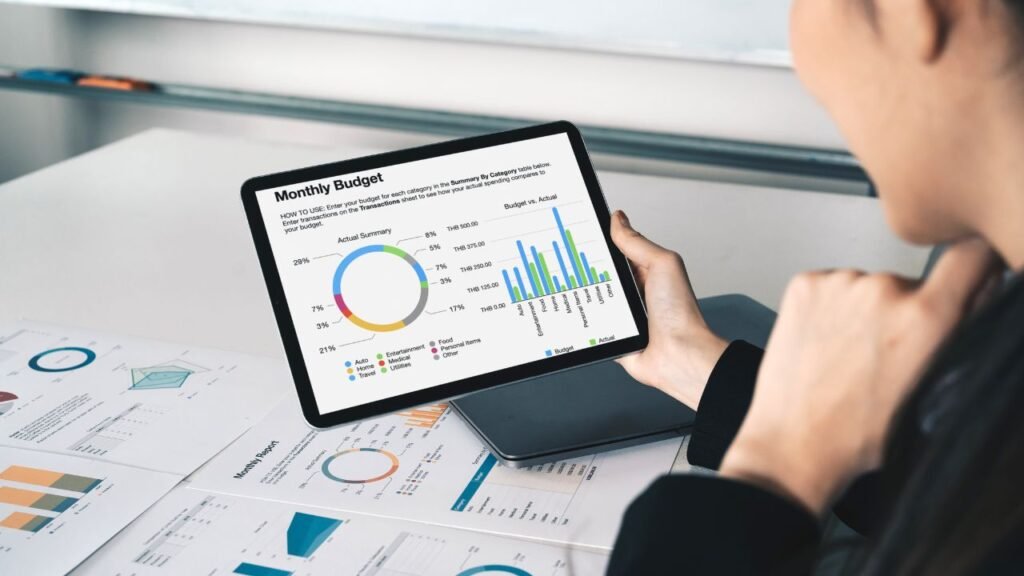Budget Like a Boss: Secrets to Stress-Free Money Management

Managing money can feel overwhelming. Bills pile up, unexpected expenses appear, and it often seems impossible to make ends meet. Many people avoid budgeting because they see it as restrictive, stressful, or time-consuming. The truth is, budgeting is not about limitation—it’s about control, freedom, and peace of mind. When done correctly, a budget can transform your relationship with money, reduce financial stress, and help you reach your goals faster. Here’s a step-by-step guide to budgeting like a boss, without the overwhelm.
Understanding the Purpose of a Budget
Before diving into numbers and spreadsheets, it’s crucial to understand what a budget really is. A budget is not a punishment or a tool to restrict spending—it’s a blueprint for your financial life.
Empowerment, Not Restriction
A well-structured budget allows you to take control of your finances. It helps you see exactly where your money goes, so you can make intentional choices rather than reactive ones.
Reducing Anxiety
Money stress is a common source of anxiety. Knowing your income, expenses, and savings plan brings clarity and reduces financial uncertainty.
Debunking Misconceptions
Some people think budgeting is only for those struggling financially. In reality, everyone benefits from a clear plan—whether you’re trying to save for a home, travel, or retirement. Budgeting is about making your money work for you, not against you.
Getting Started: Assessing Your Finances
The first step in creating a stress-free budget is to understand your current financial situation. This involves tracking income, expenses, and debts.
Track Income and Expenses
Start by listing all sources of income, including salary, freelance work, and passive income. Next, track every expense—rent, utilities, groceries, subscriptions, and even small daily purchases like coffee.
Identify Recurring Bills and Obligations
Recognize which expenses are fixed, like mortgage or rent, and which are variable, like entertainment or dining out. Understanding these distinctions will help you allocate money appropriately.
Use Tools to Simplify Tracking
Budgeting apps like Mint, YNAB (You Need a Budget), or EveryDollar can automatically track your income and expenses, categorize spending, and generate useful reports. These tools make it easier to maintain a clear picture of your finances.
By assessing your finances thoroughly, you lay a strong foundation for a budget that actually works.

Choosing a Budgeting Method That Works
There’s no one-size-fits-all approach to budgeting. The best method is the one that aligns with your lifestyle and financial goals.
The 50/30/20 Rule
This popular approach allocates 50% of your income to necessities, 30% to discretionary spending, and 20% to savings or debt repayment. It’s simple and effective for most people.
Zero-Based Budgeting
In this method, every dollar is assigned a purpose—either spending, saving, or investing—so that your income minus expenses equals zero. It’s highly detailed and promotes intentional money use.
Envelope System
A traditional approach where cash is divided into envelopes labeled with spending categories. Once the money in an envelope is gone, you stop spending in that category. This method is excellent for controlling discretionary spending.
Customizing Your Budget
Feel free to combine elements from different methods to suit your situation. The key is consistency and flexibility—your budget should adapt to life changes without causing stress.
Smart Spending Strategies
A budget is only effective if paired with intentional spending. Smart spending means prioritizing value, avoiding unnecessary expenses, and making your money go further.
Prioritize Needs Over Wants
Identify what’s essential—housing, utilities, groceries—and what’s discretionary, like dining out or entertainment. Focusing on needs first ensures financial stability.
Cut Unnecessary Expenses
Review subscriptions, memberships, and recurring purchases. Cancel services you don’t use or find cheaper alternatives. Small changes add up over time.
Negotiate Bills and Find Discounts
Many bills, from cable to insurance, are negotiable. Shop around for better deals and use coupons or cashback programs to save money on regular expenses.
Make Intentional Purchases
Before buying, ask yourself if the purchase aligns with your goals. Impulse spending can derail even the best budget. Waiting 24–48 hours before non-essential purchases often prevents buyer’s remorse.
By spending smartly, you free up resources to save, invest, and enjoy life without guilt.

Stress-Free Saving Techniques
While spending wisely is crucial, saving strategically ensures your money grows and protects you from unexpected financial shocks.
Automate Your Savings
Set up automatic transfers to savings or investment accounts. Automating savings makes it a non-negotiable habit and removes the temptation to spend what you should be saving.
Build an Emergency Fund
An emergency fund acts as a financial safety net. Aim to save three to six months’ worth of living expenses in a high-yield savings account for quick access.
Short- and Long-Term Goals
Divide your savings into different buckets. Short-term goals might include a vacation or new gadget, while long-term goals could be retirement or a down payment on a home.
Combine Saving With Investments
Consider investing in low-cost index funds, retirement accounts, or other vehicles to grow your money over time. Even modest contributions can compound into significant wealth.
Review and Adjust
Regularly assess your savings progress. Life changes—new job, raise, or unexpected expenses—may require tweaks to your plan. Flexibility ensures stress-free saving.
Monitoring and Adjusting Your Budget
A budget is a living tool. To remain effective, it requires ongoing monitoring and adjustments.
Review Regularly
Check your budget weekly or monthly to track progress. Seeing how much you’ve saved or where you overspent helps maintain control.
Celebrate Wins
Acknowledge milestones like paying off a credit card or hitting a savings target. Celebrating progress reinforces positive habits.
Address Challenges
If you overspend in a category, adjust other allocations or find ways to cut back next month. Budgeting is about learning and adapting, not punishment.
Adapt to Life Changes
Income fluctuations, new family members, or major purchases may require adjustments. Flexibility ensures your budget remains realistic and stress-free.
Mindset and Lifestyle Tips for Stress-Free Budgeting
Financial success isn’t just about numbers—it’s about mindset and habits.
Adopt a Money-Positive Mindset
See budgeting as empowering, not restrictive. Your budget is a tool to achieve freedom, not a list of limitations.
Avoid Guilt or Shame Around Spending
Everyone makes mistakes. Focus on progress, not perfection. Learning from missteps strengthens your financial discipline.
Incorporate Effortless Habits
Small habits—like meal prepping, automatic bill payments, and tracking daily expenses—make budgeting feel natural rather than stressful.
Stay Consistent and Patient
Wealth and financial security grow gradually. Consistency and patience are key to long-term success.
Conclusion
Budgeting like a boss isn’t about restriction—it’s about control, clarity, and confidence. By understanding your finances, choosing a budgeting method that suits your lifestyle, spending smartly, and saving strategically, you can reduce money stress and achieve your financial goals.
Remember, a budget is a tool for freedom, not a cage. Start today by assessing your spending, creating a plan, and taking consistent, intentional actions. With the right mindset and habits, you can manage your money stress-free and enjoy a secure, prosperous future. Take charge of your finances, and you take charge of your life.
